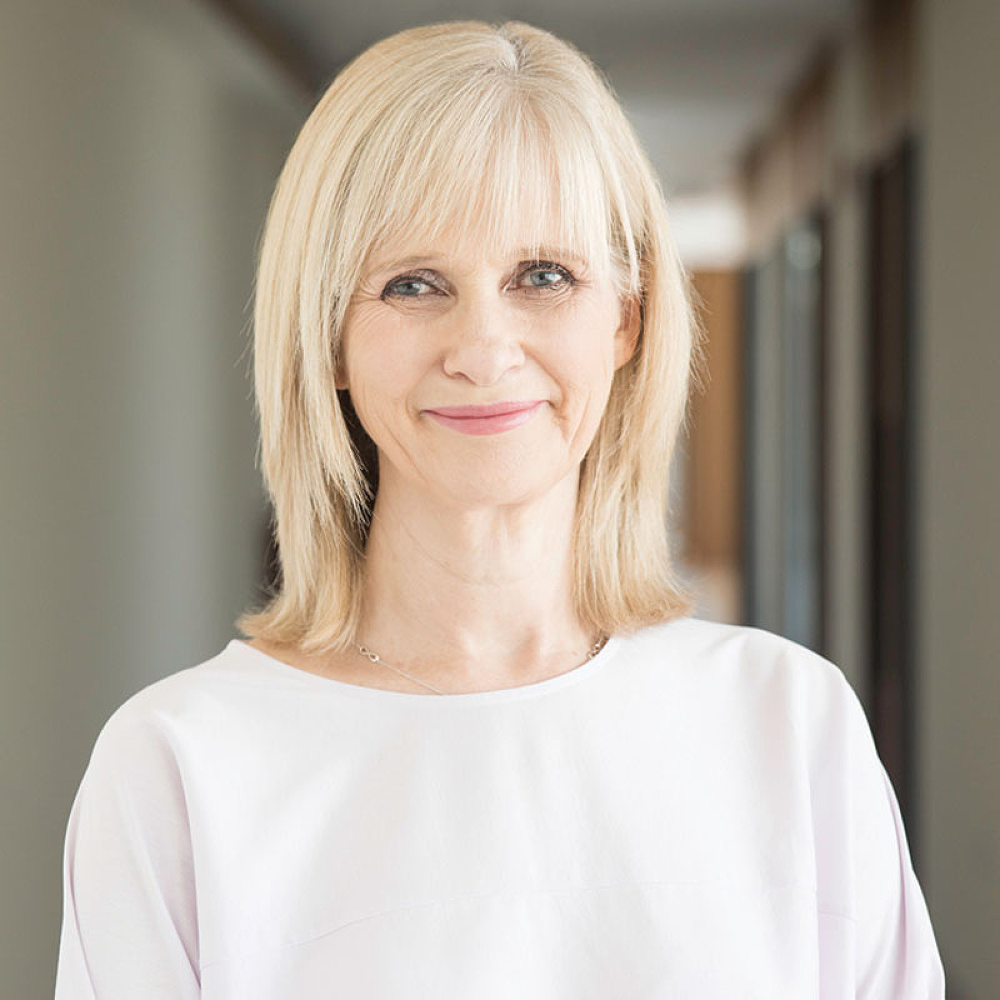Dr Fiona Rennie, Dubai’s menopause expert at Genesis Healthcare Center, shares her tips on managing menopause without fear.
What do the first 30 minutes of your day look like, your morning routine?
Weight training, Pilates or cardio at least four days a week and then my reward is a coffee right before my first patient.
Talk us through your career.
I graduated from medical school in New Zealand in 1990 and later achieved my post graduate qualifications in pediatrics, obstetrics, gynecology and aviation medicine. I worked for five years as a General Practitioner obstetrician in New Zealand delivering up to 80 babies a year and family medicine. I worked for seven years for the Royal Australian Navy with helicopter and fighter pilots in aviation and diving medicine, and 11 years for Emirates, latterly as Vice President of Aviation Medicine and Occupational Health. Later, in 2016, I reinvented myself as a menopause doctor.

October 18 is regarded as World Menopause Day. How did it all begin? What happens during menopause and what are some of the changes our body experiences during this phase?
The WHO and the International Menopause Society met in 1984 and chose October 18 as the date to raise awareness and support women undergoing menopause.
A woman is menopausal when she has had a year without a menstrual period. The
average age is 51 and this occurs because her ovaries have run out of “eggs” and no longer produce any hormones. However, in the 10-12 years preceding menopause (known as perimenopause) many women develop symptoms and this is because the ovaries are not functioning optimally. Every cell in the body needs oestrogen to function normally so symptoms can be numerous. For example, poor sleep, anxiety, low mood, fatigue, poor memory, irritability, achy joints, flushes, night sweats, hair loss, palpitations, weight gain and many more.
What key nutrients should we be giving our body during this time?
A diet that is high in good quality protein, lots of vegetables, low in refined carbohydrates, preferably no sugar and minimal alcohol. In menopause, alcohol has a significant effect on sleep quality and can increase anxiety which is a common symptom.
What are some medical treatments to ease menopause symptoms?
The gold standard is replacing the hormones that are missing (or fluctuating, as is the case in perimenopause). There are three types of menopausal hormone therapy: Synthetic, body identical and bioIdentical. My preference is body identical which is made from yam, plant based and extremely effective.
How can women minimise night sweats as hot flashes?
Reducing stress, good sleep hygiene, reducing alcohol, caffeine and nicotine, regular exercise and a healthy diet are all important elements to curb hot flashes.
What are the key tips to managing symptoms of menopause and are there any natural measures that can help in doing so?
Some of the key tips to managing symptoms of menopause are reducing stress, getting a good amount of sleep, reducing alcohol, caffeine and nicotine intake, ensuring regular exercise with a focus on weight training, a healthy diet, Vitamin D supplements, ensuring enough Magnesium glycinate for sleep and Body Identical HRT for both the treatment of symptoms and prevention of osteoporosis, and heart disease as well as reduction in risk of diabetes, colon cancer and dementia.
This is The Fearlessness Issue – how do you overcome your fears?
I tell myself that whatever I fear is likely to never happen. Live each day as if it’s your last. Stay healthy, eat well and exercise. Treat others as you would like to be treated and laugh a lot!











